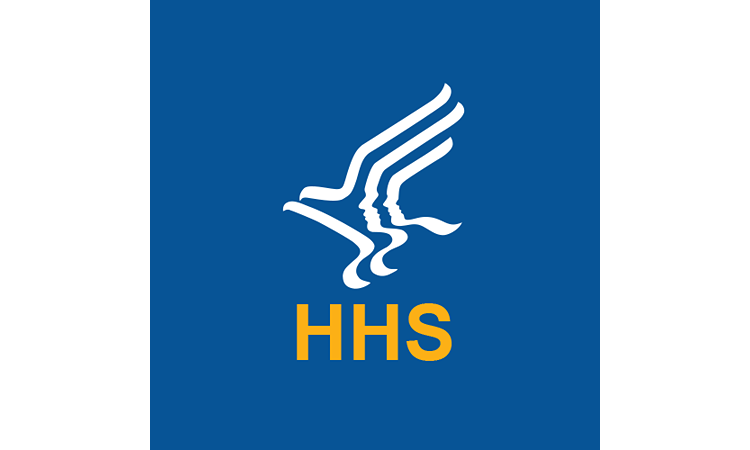First Amendment scholar Laurence Tribe provides thoughts on use of prescription data:
From WLF Legal Backgrounder, December 11, 2009 – Vol. 24, No. 40:
A constitutional flu has taken hold in New England, and it threatens to spread throughout the country. New Hampshire, Maine, and Vermont have each recently enacted laws generally making it a crime to transfer entirely truthful information about prescriptions with the purpose of promoting prescription drugs. The point of these laws is neither to prevent misleading drug advertising or labeling nor to protect patient privacy — other rules prohibit deceptive or otherwise unfair promotional practices and keep patients’ identities confidential.
Instead, these new laws are intended to prevent conversations between doctors and drug companies about the merits of different treatments — and are designed to do so by bottling up prescription-related information at its source in the pharmacies that fill the prescriptions. In other words, the state is blocking the transfer of information in order to make it harder for drug companies to locate the doctors who would be most interested in how (not by whom) the companies’ products have been used.
On the face of it, these laws abridge freedom of communication. But, to give them their due, we should try to understand the context in which they arose. The development of electronic record keeping and transmission has enabled healthcare professionals ranging from academic clinicians to pharmaceutical manufacturers to refer increasingly to complex data analyses rather than depending entirely on personal experience and anecdotal shop talk. Consider the obvious example of drug safety, in which the collection of national data allows companies — and, of course, federal regulators — to identify unforeseen problems like drug complications and rising antibiotic resistance. When presented with new and relevant information, drug companies need to contact doctors who are known to prescribe certain medications in order to alert them to what has been learned.
Pharmaceutical companies also use this prescriber-specific data, stripped by encryption software of any patient-identifying information, to help them market new and alternative therapies directly to doctors. Such marketing occurs most commonly through a process known as “detailing,” in which representatives meet briefly with prescribing physicians to provide “details” about the companies’ products. The prescription history data lets the companies target those doctors who would most want to know about the company’s products. Although the doctors are, of course, completely free to decline the detailers’ visits, they often accept precisely because they receive useful information about current developments.
Pharmaceutical companies do not themselves generate the data that detailers use to locate interested physicians. Instead, specialized research and publishing companies develop complex data sets by obtaining, aggregating, and analyzing the billions of prescription drug records maintained by pharmacies throughout the country. These data-analyzing companies receive this information only after it has been stripped of patient identities, and use the data to produce daily, weekly, and monthly reports that contain information showing physicians’ prescribing histories and patterns. The publishers then issue their reports to interested companies, which in turn use the reports for both commercial and noncommercial purposes. In this regard, the reports resemble the hedge fund performance rankings published by The Wall Street Journal — in which the names of all investors remain anonymous, but the fund managers and the investments they make are the subject of independent evaluation.
Beginning in 2006, however, an antidetailing fever broke out. New Hampshire acted first, joined within a year by Maine and Vermont, enacting laws explicitly intended to restrict this suddenly controversial practice. The laws did not directly ban detailing, instead opting for a more circuitous route. First, the laws generally forbid data research and publishing companies from acquiring, analyzing, and providing pharmaceutical companies with such data, even when indisputably accurate, when one of the purposes of such data acquisition and dissemination may be commercial. Second, the laws prevent the pharmaceutical companies themselves from relying on the publishers’ reports as a means to tailor their marketing strategies.
The states argue that these novel laws encourage cost-reduction, improve patient safety, and protect patient privacy. But the rationale behind each of those arguments is the same: the states paternalistically want to make it more difficult for doctors to receive truthful information from drug companies that the states think will lead doctors to make bad prescribing decisions. Though the states sometimes also invoke the doctors’ own privacy, that is a canard, because the laws permit the release of prescription-history information for any and all purposes other than pharmaceutical marketing.
Not surprisingly, the regulated companies have fought back in court. The results so far are mixed. In New Hampshire, a trial court struck down that state’s statute, but the court of appeals reversed the decision. In Maine, the statute has been struck down in part, a ruling that is now on appeal.
Vermont’s restriction remains pending before the U.S. Court of Appeals for the Second Circuit.
In fact, these lawsuits should be easily decided in favor of holding the statutes unconstitutional. Undeniably, they regulate speech. Practically speaking, for the same reason that restricting ESPN from collecting statistics for use in creating box scores would restrict its speech, so too forbidding data researchers to publish reports of pharmaceutical relevance is both a direct ban on publishing truthful factual information and an indirect restraint on the speech that such information makes possible. Twice the Supreme Court has affirmed this view, first in Dun & Bradstreet, Inc. v. Greenmoss Builders, in regard to credit reports, and then again in LAPD v. United Reporting Publishing Corp., concerning arrest records. In both cases, the Court recognized that obstructing access to the informational building blocks of speech is every bit as pernicious an abuse of governmental power over the free flow of information and ideas as is restricting the resulting speech itself. That is just an application of the broader principle that the First Amendment protects not only the expression of political and other ideas but also, and at least as fundamentally, the exchange of truthful factual information.
But even if the dissemination of factual data were thought to lack constitutional protection in and of itself, the First Amendment would still protect that dissemination for its role as an ingredient in the persuasive communications it enables. Thus, in Minnesota Star & Tribune Co. v. Minnesota Commissioner of Revenue, the Court struck down ink taxes that burdened newspaper production because they had the indirect effect of burdening the newspaper’s speech.
The soundness of these precedents is beyond dispute. As the framers recognized and the Supreme Court has so often reaffirmed, the freedom of speech necessarily includes the freedom to avail oneself of the information and other resources without which speech would be an empty abstraction.
The newly popular restrictions on prescription-related speech cannot survive application of these core principles and the precedents embodying them. To begin with, the transmission of the truthful pharmaceutical information itself is fully protected by the First Amendment. We have long since outgrown the view that only ideological or religious expression is entitled to undiluted protection under the Free Speech Clause. Nor does the U.S. Constitution embrace the position that an economic motive strips speech of full protection — a fact vital to the survival of the publication industry. The government’s greater power to regulate so-called “commercial speech” applies only to communication that (as the Supreme Court said in Cincinnati v. Discovery Network) “does no more than propose a commercial transaction.” The companies that distribute prescription history information are not proposing any commercial relationship. And, although the other entities regulated by these laws (drug companies) do ultimately seek to promote their products, their speech too warrants heightened protection because it includes extensive scientific information on matters of profound public importance.
These prescription restraint laws are also subject to strict judicial scrutiny because they discriminate on the basis of viewpoint. At the same time that they are trying to make it harder for drug companies to contact doctors, the statutes encourage the use of the identical information by the state itself and by health insurers to try to dissuade doctors from prescribing brand-name drugs. Time and again the Supreme Court has struck down laws like these that favor one side in the “marketplace of ideas,” because any other policy would permit the awesome resources of the government to squelch opinion with which it disagreed.
Even if the prescription restraint laws were subject to the more forgiving standard applicable to regulations of purely commercial speech, however, they would still be unconstitutional because they violate the core principle that the government may not restrict even commercial communication merely to block the dissemination of truth. These laws are predicated on the paternalistic notion that the state is better able to make prescription drug choices than are the highly trained doctors who actually know their patients and prescribe medications for them. While the increasing use of prescription medicines is doubtlessly a matter of ongoing debate, the public importance of that conversation — especially in the midst of the national debate over healthcare reform — merely underscores the need for informed discussion from all sides. This choice, between censorship and debate, is one America has faced before. And before the government is allowed to silence one voice in a decidedly two-sided conversation, we would be wise to remember the insights of Justice Oliver Wendell Holmes. Dissenting in Abrams v. United States, he observed, “the ultimate good desired is better reached by free trade in ideas,” for “the best test of truth is the power of the thought to get itself accepted in the competition of the market,” and “truth is the only ground upon which [peoples’] wishes can safely be carried out.” This is not to say that the Constitution compels the states to accept detailing without criticism and even regulation. To the contrary, if they oppose the practice, the Constitution encourages them to devote their considerable resources to loudly voicing that opposition and debating ways to regulate its supposed abuses — but not to silencing the free flow of truthful information that these new and dangerous laws target.
Laurence H. Tribe is the Carl M. Loeb University Professor and Professor of Constitutional Law at Harvard Law School. Affiliation is noted for identification purposes only. The author is also a non-litigating consultant to IMS Health, which has challenged the constitutionality of the statutes discussed in this article. But the views expressed herein are the author’s own.



